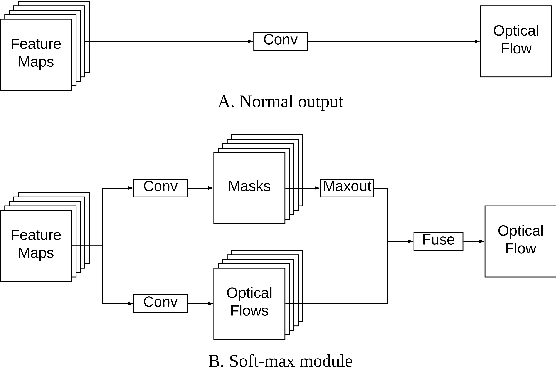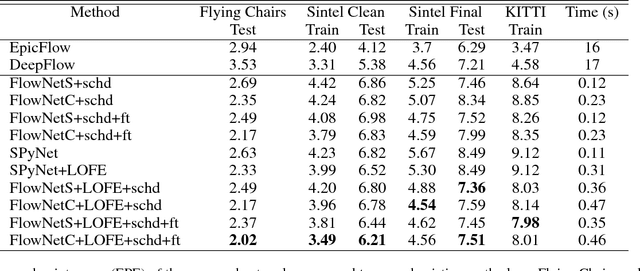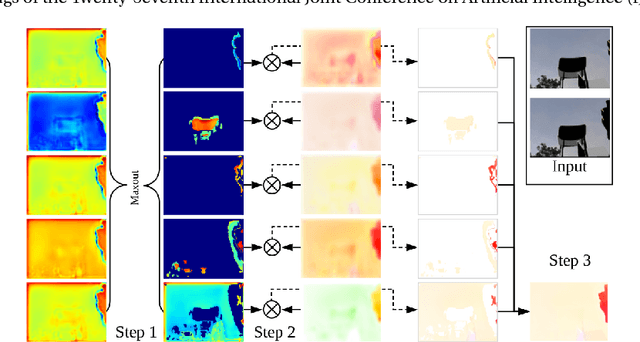Layered Optical Flow Estimation Using a Deep Neural Network with a Soft Mask
Paper and Code
May 09, 2018



Using a layered representation for motion estimation has the advantage of being able to cope with discontinuities and occlusions. In this paper, we learn to estimate optical flow by combining a layered motion representation with deep learning. Instead of pre-segmenting the image to layers, the proposed approach automatically generates a layered representation of optical flow using the proposed soft-mask module. The essential components of the soft-mask module are maxout and fuse operations, which enable a disjoint layered representation of optical flow and more accurate flow estimation. We show that by using masks the motion estimate results in a quadratic function of input features in the output layer. The proposed soft-mask module can be added to any existing optical flow estimation networks by replacing their flow output layer. In this work, we use FlowNet as the base network to which we add the soft-mask module. The resulting network is tested on three well-known benchmarks with both supervised and unsupervised flow estimation tasks. Evaluation results show that the proposed network achieve better results compared with the original FlowNet.
 Add to Chrome
Add to Chrome Add to Firefox
Add to Firefox Add to Edge
Add to Edge